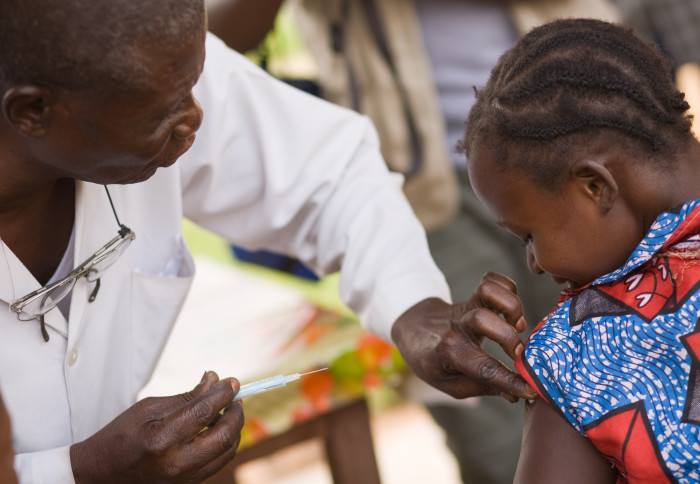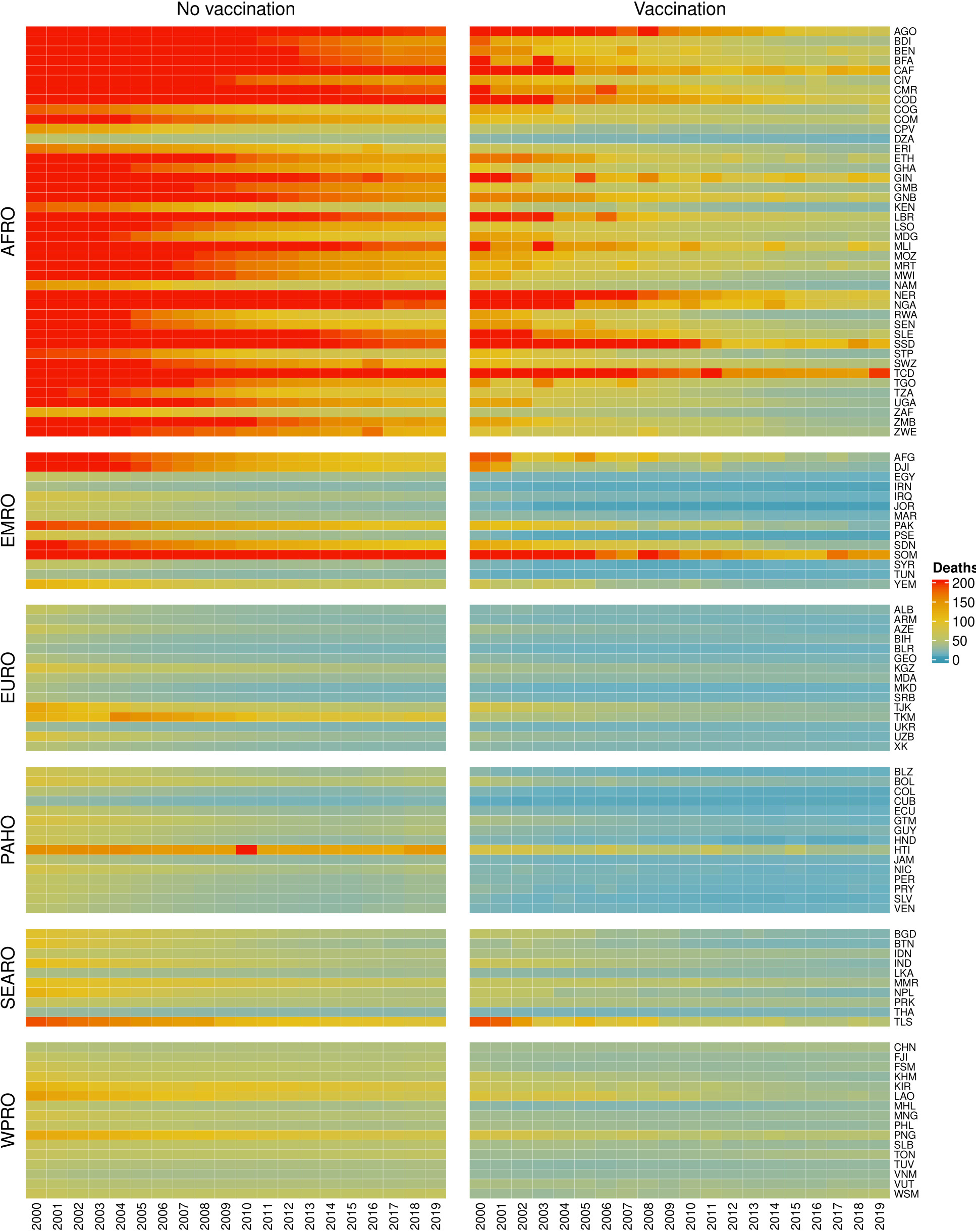Vaccines given in last 20 years could prevent 50 million deaths in LMICs

Vaccinations given in low- and middle-income countries (LMICs) in the last 20 years will prevent 50 million deaths from infectious diseases.
New research, led by the Vaccine Impact Modelling Consortium, including researchers at Imperial College London, assessed the impact of vaccination activities against 10 infectious diseases across 112 countries.
"Vaccine programmes are making an extraordinary impact in low- and middle-income countries around the world. Millions of lives have been saved already, with the majority being children under the age of five." Professor Neil Ferguson Director of MRC-GIDA and the Jameel Institute
The team say that success is expected to continue, with a further 47 million deaths predicted to be prevented by vaccination given between 2020 and 2030, if progress is sustained.
This would mean 97 million deaths in LMICs would be prevented by vaccination occurring between 2000 and 2030.
The majority (52 million) of deaths averted would be children under the age of five.
However, the researchers warn that COVID-19 has disrupted vaccine activities and could lead to a decline in coverage.
The study, published in eLife, is the largest assessment of vaccine impact before the start of the COVID-19 pandemic.
While the impact caused by the COVID-19 is difficult to assess so far, the researchers say that there are likely to be delays to vaccine activities as health services are disrupted.

Vaccine impact on ten deadly diseases
The diseases the researchers looked at included measles, hepatitis B, human papillomavirus (HPV), yellow fever, Haemophilus influenzae type b, Streptococcus pneumoniae, rubella, rotavirus, Neisseria meningitidis serogroup A, and Japanese encephalitis.
"It is critical that we continue vaccine efforts against infectious diseases whilst tackling the ongoing threat of COVID-19." Dr Katy Gaythorpe Study author
If vaccination efforts continue as planned until 2030, the team estimate that 47 million deaths from measles would be averted. The next highest was hepatitis B with 29 million deaths averted and HPV was third with 6.6 million deaths averted.
The study builds on previous work and the team have used new and updated models to better understand the uncertainty ranges for many of the pathogens.
The result of this is that future impact has reduced for measles and hepatitis B and impact in general has reduced for yellow fever. In terms of HPV, the impact has increased when the researchers examined impact by birth cohort as the coverage scenario used by the consortium for this publication is more optimistic than its predecessor.
The Vaccine Impact Modelling Consortium is funded by Gavi, the Vaccine Alliance and the Bill & Melinda Gates Foundation.
Long-term benefits of vaccination activities
Professor Neil Ferguson said: “Vaccine programmes are making an extraordinary impact in low- and middle-income countries around the world. Millions of lives have been saved already, with the majority being children under the age of five. This research shows that we have the opportunity to protect many more people over the next decade from deadly diseases. This should encourage global efforts to support immunisation programmes and not leave populations vulnerable to infectious diseases in the wake of the COVID-19 pandemic.”
Dr Katy Gaythorpe said: “Our study demonstrates the staggering effect of immunisation before the pandemic and the long-term benefits of vaccination activities. We also show what the benefits could have been in a world without SARS-CoV-2. It is critical that we continue vaccine efforts against infectious diseases whilst tackling the ongoing threat of COVID-19.”
Dr Jaspreet Toor said: “Prior to the COVID-19 pandemic, our study shows the immense progress vaccination activities have had with 50 million lives saved by vaccinations given between 2000-2019. Without Covid-19, millions more were projected to be saved over the next decade. This highlights the importance of sustaining and improving vaccination coverage as we continue to tackle the COVID-19 pandemic globally.”
Article supporters
Article text (excluding photos or graphics) © Imperial College London.
Photos and graphics subject to third party copyright used with permission or © Imperial College London.
Reporter
Stephen Johns
Communications Division